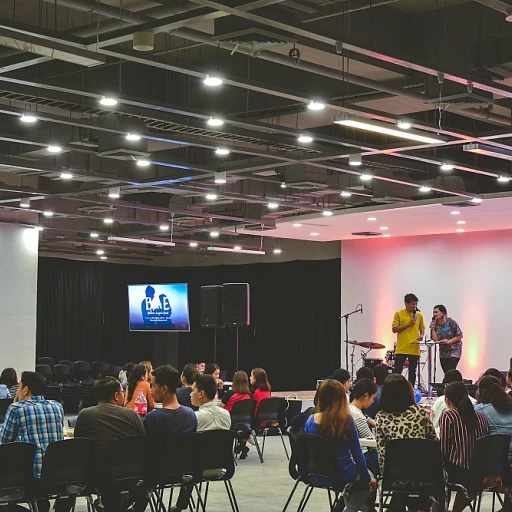Fostering an Inclusive Workplace Culture
Building a Diverse and Welcoming Work Environment
Embracing diversity, equity, and inclusion (DEI) is a vital part of crafting a well-being oriented office atmosphere. A Harvard Business Review article highlighted that diverse teams can lead to innovation and better decision making. Office managers in New Zealand should prioritize initiatives that promote inclusivity, ranging from DEI training sessions to celebrating cultural events. This not only uplifts morale but also encourages a sense of belonging among employees, which is critical for a thriving workplace.
Supporting Mental Health in the Workplace
Mental health has taken center stage, especially in the stressful, fast-paced modern work environment. Mental health awareness is more than just a corporate buzzword; it's an essential factor in employee well-being and overall productivity. Implementing mental health days, providing access to counseling services, and ensuring that managers are trained to recognize signs of mental distress can create a supportive network. According to the Mental Health Foundation of New Zealand, making mental health a priority boosts employee engagement and satisfaction.
Encouraging Employee Development and Growth
The link between professional development and job satisfaction cannot be overstated. As an Office management analyst, I've observed that employees who feel their career growth is supported are more likely to report higher job satisfaction. By facilitating skill-building workshops and creating clear career paths, office managers can inspire their team and drive productivity. Statistics from the Deloitte Human Capital Trends report indicate that investment in learning and development is a key trend in high-performing workplaces.
Nurturing Physical Workspaces That Inspire
The physical layout and design of an office are more than just aesthetic considerations; they play a pivotal role in how employees interact and feel. Studies show that office environments with natural light, ergonomic furniture, and adaptable workspaces can lead to reduced stress levels and higher productivity. Office managers should consider the physical workspace as part of their strategy for promoting well-being. This attention to detail signifies to employees that their comfort and work experience are top priorities.
Balancing Productivity and Wellness: The Office Manager's Guide
Striking the Perfect Balance between Task Efficiency and Employee Health
In today's fast-paced office environments across New Zealand, office managers are the linchpins that hold the teams together. They are tasked with the goal of maximising productivity while also ensuring that employee well-being remains a top priority. Finding the equilibrium can be challenging, but it is essential for a sustainable workplace. Statistics show that businesses promoting a healthy work-life balance have a 25% lower employee turnover rate. Following a strategy that includes designated breaks, flexible working hours, and support for mental health can significantly boost overall employee satisfaction and productivity.
Implementing Wellness Initiatives with Measurable Impact
Well-being in the workplace goes beyond mere workplace aesthetics; it's about creating initiatives that have a measurable impact on staff. Office managers in New Zealand can introduce programs like mindfulness training, ergonomic assessments, and regular health-related workshops. These initiatives not only demonstrate an investment in employee health but also contribute to building a strong office culture where individuals feel looked after. A survey conducted by the Wellness Council of America found that companies with comprehensive wellness programs see a 30% reduction in medical and absenteeism costs.
Maximising Office Layout for Enhanced Well-Being
The physical office layout has a profound effect on how employees interact and perform. Office managers should consider spaces that allow for both collaboration and individual work. The inclusion of plants, natural light, and break-out areas are just a few examples of how the environment can promote a harmonious and productive workplace. In fact, studies reveal that natural light in the office can improve workers' sleep by 46 minutes per night, contributing to better concentration and productivity during work hours.
Encouraging Healthy Work Habits through Technology
With the right technology, maintaining a balance between productivity and well-being is more achievable than ever. Office management software can assist in project tracking and time management while promoting a paperless office. Additionally, tools that monitor workload can help in identifying burnout before it becomes an issue. This technological leverage is a game-changer for office managers aiming to streamline operations and foster a healthy working environment.






